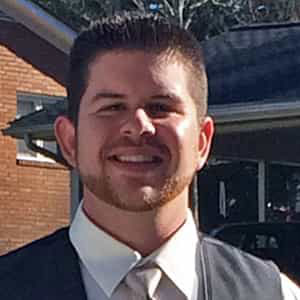Dream Journal
 Note From Dr B.
Note From Dr B.
Humility is a critical component of the recovery process. It not only necessitates modesty, but also perspective. Oftentimes, addiction causes the individual to become self-centered, leading to low or elevated mood, so clients at Two Dreams use process groups to develop an appropriate understanding of themselves and the world around them. Processing emotions and situations in a group therapy setting allows for a more balanced mood and a more realistic outlook on life.
Humility is not self-deprecation, nor is it a weakness. One can still be strong and proud while possessing the personal quality of humbleness. Without humility, the full benefit of a recovery program is lost to pride and conflict. There is a middle group between “being a doormat” and being arrogant, and we strive to help our clients find it.
Sincerely,
Dr. B

Humility — Guest Writing by Zoe Crawford
Merriam Webster dictionary defines humility as “the quality or state of not thinking you are better than other people.” I have found that those in active addiction often operate on two planes: simultaneously thinking that they are better and more capable than others, while also struggling to even think of themselves as human at all.
It has been said that those who ultimately surrender and seek help have the gift of desperation. However, I believe that before one receives that gift, there is a period of time (perhaps only a few fleeting seconds) when an individual realizes that he or she is the same as everyone else on the planet. This insight causes their reality to come into sharp focus. There comes the certainty that, as is written in the Big Book, “if I continue using, I could die, just like so many others. I do not have control over this drug—it has control over me.”
In my experience, it is at this turning point that the individual begins to consider change. They had a moment of humility, a brief understanding of their human-ness and the reality of their situation. As clinicians, it is our job to listen carefully to clients so that we may hear this (often faint) acknowledgement of humility and translate that into therapeutic action. Depending on clinical presentation, this may mean referring the client to a higher level of care, arranging for a sober companion, or recommending service work.
Without that first flash of humility, I don’t think anyone can find his or her way into recovery. It is only when we are able to admit like they do in the Big Book that we “are more simply human than otherwise,” that the magic of recovery can begin to take hold.
Theme Analysis: Humility

“To get completely away from our aversion to the idea of being humble, to gain a vision of humility as the avenue to true freedom of the human spirit, to be willing to work for humility as something desired for itself, takes most of us a long, long time”.
When I began my journey on the road to recovery I had no idea what humility was. When I thought of humility, negative images and thoughts pertaining to slavery and servitude would come to mind. Having spent most of my life thinking that I was better than others, I wanted to be unique and different. One of my earliest experiences with humility was accepting the idea that I was an alcoholic and could not drink safely anymore. It really didn’t matter if I wanted to be an alcoholic or if I gave my permission to become an alcoholic; what mattered was that I understood that my drinking was out-of-control and I needed help.
I can recall a conversation in early sobriety where I was complaining about circumstances that occurred in my life and I couldn’t understand why they had happened to me. The person that I was sharing with looked at me and asked, “if not you, then who else would you like these things to happen to?” I was then advised to look around the meeting room and pick someone that I felt deserved to experience my situation. Which person should feel unhappy so that I would feel better? I remember thinking that it didn’t feel right to wish the circumstances on someone else and that I would have to deal with what was going on in my life. The wonderful thing that I learned at that time was that I didn’t have to experience anything alone. I learned that there were people and tools available to help me navigate my way through life.
I think I’ve learned much of what I know about humility by watching and listening to people who have stayed sober through the trials and tribulations of the human experience and who have still felt the joy of living. Life is still difficult at times, but humility frees me from self-centered torture and self-pity. Humility keeps me right-sized; it gives me the feeling or attitude that I have no special importance making me better or worse than others. I am capable of doing what anyone else does and that includes positive and negative actions.
I have gone from lacking humility to understanding its important place in my life, my relationships with others, and my higher power. I had to embrace the idea of humility in order to be comfortable in my own skin and to be useful to others. While I understood the importance of humility it was still not one of the characteristics that I desired. As my journey has continued I have come to understand that humility is something that I want to have. This change of attitude enables me to experience freedom, peace and serenity.
News Highlights
Democrats and Republicans Join Together to Fight Opioid Addiction in a Rare Display of Humility and Unity
Government officials have finally accepted the shortcomings present in the American healthcare system regarding addiction. The Comprehensive Addiction and Recovery Act (CARA) bill passed in July with overwhelming support from both Democrats and Republicans. The bill will help communities create and develop opioid treatment and overdose programs. Although funding is minimal, the passing of this bill is definitely a step in the right direction.
You Never Know What You’re Going to Get…Elephant Tranquilizers Found Mixed with Heroin
A fatal combination of drugs is popping up around the country. Users and dealers are adding the drug cafentanil, used as an elephant traquilizer, to heroin mixtures in order to intensify the high. Carfentanil is an ultra-potent opioid, 100 times stronger than fentanyl, and overdoses are potentially irreversible by Narcan.
Featured Staff Member Questions: Jody Overstreet
 Q. What is your current position and job description?
Q. What is your current position and job description?
I am a Recovery Support Specialist for Two Dreams. I work with clients throughout their treatment process regarding their recovery through personal experience and aid in the clients transition back into employment.
Q. Where did you work before Two Dreams and what did you do?
I have worked in the restaurant industry and in the field of pharmacy technology.
Q. What has your journey been like at Two Dreams?
I have learned a lot about myself through helping others. I have also learned many different ways to help someone else who is struggling in their recovery.
Q. What made you get into this profession?
I want to work in this profession because I have been through a few rehabilitation programs and have been in recovery houses and have found that I am happiest when I am helping others recover from the disease of addiction.
Q. What is the most gratifying part of your job?
I get to help others and see them grow and change; it reminds me of how blessed my life is and how cool recovery is.
Q. What do you like about the Two Dreams program?
I like that clients have the opportunity to grow in a safe open environment where they get personalized care. I also like that you aren’t just a name here; the staff gets to know you on a personal level and they all really care.
Q. Where did you go to college and post-grad and what did you study?
I’m currently enrolled in College of the Albemarle studying to get my associates in Science. I plan on transferring and trying to become a therapist so I can continue in this field.
Q. How would others describe you?
I think that most people would describe me as funny and caring. I have an ability to turn a tragic situation into something you can learn and grow from.
Q. What do you like to do when not at work? What are your favorite hobbies?
I like to go to the beach. I like to fish and spend time with friends at cookouts.
Q. Anything else you would like us to know?
I’m truly blessed to have people in my life today and the opportunity to work in a place where there are many people to learn from. I consider my director to be a mentor, and I love all the people here.
3 P’s – July 2016
Physical Well-Being, Personal Productivity, Mental Peace

Theme: Humility
“True humility is staying teachable, regardless of how much you already know.”
– Anonymous
This quote about humility refers to staying teachable regardless of how much we know because we can never know everything…that is just not possible. Every single one of us has an ego; we were born with it, and its purpose is to protect us. When our ego grows to be larger than who we really are inside, we see a lack of humility that can be detrimental to our health. If your ego is out of whack, you may think that you do not need to take care of your mental health or diet or exercise; you may think that you are too good for the job you are offered even if it could be a great opportunity for you. Your ego may even drive you conversely into self-loathing. You may obsess about yourself until you develop perfectionist tendencies and believe that you are not worthy of anything. This could manifest as over-exercising, compulsive dieting, even obsessively seeking relaxation/mental peace.
The inflated ego is detrimental to our health and wellbeing because it lies to us; it tells us that we are something that we are not. It is time to let our inflated (or deflated) egos go; we can avoid the harm they cause us. We need to ensure that we take a daily self-inventory and stay teachable in every aspect of our lives. Every day we should reassess our levels of mental peace, physical wellbeing and personal productivity to avoid reverting to old patterns and old behaviors.
Outer Banks Community Update July 2016
It is officially peak vacation season on the Outer Banks of North Carolina and it is busier than ever!
The clients at Two Dreams Outer Banks start their day with a fruit smoothie as well as a sun salutation on the beach to get their bodies awake and moving. They keep busy the rest of the day in recovery by attending weekly AA/NA meetings, process groups, art therapy, experiential groups and team building exercises.
Even with all of the hard work our clients put towards their recovery, it is important to still have fun also! This is done in a number of ways including cookouts, pool time, beach time and weekly activities including mini golf and catching up on the latest films!
Chicago Update July 2016
We have a new staff member here at the Chicago office! Kathy Crotty is the personal Executive Assistant to Two Dreams CEO Andrea Barthwell, MD, DFASAM. She commutes to Oak Park from the Western Suburbs where she lives with her husband, three sons, two dogs and two cats. In her spare time she enjoys spending time with her family, attending her son’s Rugby games, fishing, and working with her Leonberger (Liam) in Therapy Work and Water Rescue. We are happy to have her on the Two Dreams team and look forward to her future contributions!
NOLA Update July 2016
Humility is a word that people tend to shy away from. It is often mistaken for the word “humiliation,” which is associated with shame and character weakness. “Humility,” on the other hand, is one of the greatest gifts I have been able to access since beginning recovery and working the Alcoholics Anonymous program. Through the surrender process necessary to begin a journey of recovery, I was able to acknowledge that I was powerless over the disease of addiction. This acknowledgement allowed me to become free from the pride and arrogance that led me to believe I could control my drinking and drug use. It was at that time that I was able to turn my will over to my Higher Power, heal from the shame, and begin a new life with healthy habits through the 12 step program. What an incredibly enlightening process it has been!
As I continue to use the tools given to me by professionals, my sponsor, and the fellowship of AA, I am able to humbly participate in my recovery knowing that I am not alone; that is a true gift to receive. If you or a loved one are struggling with the idea of conquering addiction alone, please reach out to our Two Dreams team and let us help you. No one should, or has to, fight their battles alone.
Thank you to our content contributors
For admissions and all staff call us at: (504) 510-2331
© 2016 Two Dreams. All Rights Reserved.
 Note From Dr B.
Note From Dr B. Q. What is your current position and job description?
Q. What is your current position and job description?